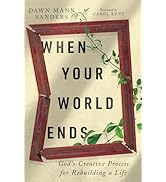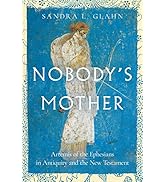
Enjoy fast, free delivery, exclusive deals, and award-winning movies & TV shows with Prime
Try Prime
and start saving today with fast, free delivery
Amazon Prime includes:
Fast, FREE Delivery is available to Prime members. To join, select "Try Amazon Prime and start saving today with Fast, FREE Delivery" below the Add to Cart button.
Amazon Prime members enjoy:- Cardmembers earn 5% Back at Amazon.com with a Prime Credit Card.
- Unlimited Free Two-Day Delivery
- Streaming of thousands of movies and TV shows with limited ads on Prime Video.
- A Kindle book to borrow for free each month - with no due dates
- Listen to over 2 million songs and hundreds of playlists
- Unlimited photo storage with anywhere access
Important: Your credit card will NOT be charged when you start your free trial or if you cancel during the trial period. If you're happy with Amazon Prime, do nothing. At the end of the free trial, your membership will automatically upgrade to a monthly membership.
Buy new:
$24.98$24.98
Ships from: Amazon Sold by: Akin03
Save with Used - Good
$8.89$8.89
Ships from: Amazon Sold by: Well-Read Resale

Download the free Kindle app and start reading Kindle books instantly on your smartphone, tablet, or computer - no Kindle device required.
Read instantly on your browser with Kindle for Web.
Using your mobile phone camera - scan the code below and download the Kindle app.



 Audible sample
Audible sample Follow the author
OK
The God Who Is There Paperback – September 16, 1998
Purchase options and add-ons
- In 2006, Christianity Today voted this title to be one of the top 50 books that have shaped evangelicals
- Print length226 pages
- LanguageEnglish
- PublisherIVP
- Publication dateSeptember 16, 1998
- Dimensions5.5 x 0.75 x 8.25 inches
- ISBN-109780830819478
- ISBN-13978-0830819478
Discover the latest buzz-worthy books, from mysteries and romance to humor and nonfiction. Explore more
Frequently bought together

Customers who viewed this item also viewed
From the brand

-
Women's History Month
-
Prepare for Lent
-
Meet Saint Patrick
-
Start a New Bible Study
-
Recommended Books
-
Books to Read with Your Kids
-
Ebooks on Sale
-

Who Are We?
Since 1947, InterVarsity Press (IVP) has been publishing thoughtful Christian books that shape both the lives of readers and the cultures they inhabit. Throughout these seventy-five years, our books and authors have established a legacy of speaking boldly into important cultural moments, providing timeless tools for spiritual growth, and equipping Christians for a vibrant life of faith.
Editorial Reviews
Review
"'This book, and its companion volumes, accomplished something startling and necessary: It made intellectual history a vital part of the evangelical landscape, opening up the worlds particularly of art and philosophy to a subculture that was suspicious and ignorant of both,' writes John Stackhouse, professor of theology and culture at Regent College." (Christianity Today, October 2006)
About the Author
Product details
- ASIN : 0830819479
- Publisher : IVP; 30th Anniversary edition (September 16, 1998)
- Language : English
- Paperback : 226 pages
- ISBN-10 : 9780830819478
- ISBN-13 : 978-0830819478
- Item Weight : 9.6 ounces
- Dimensions : 5.5 x 0.75 x 8.25 inches
- Best Sellers Rank: #1,168,100 in Books (See Top 100 in Books)
- #3,068 in Christian Apologetics (Books)
- #4,247 in American Poetry (Books)
- Customer Reviews:
About the author

Recognized internationally for his work in Christianity and culture, Francis A. Schaeffer authored more than twenty books, which have been translated into a score of languages and sold millions worldwide. He and his wife, Edith, founded L'Abri Fellowship international study and discipleship centers. Schaeffer passed away in 1984, but his influence and legacy continue worldwide.
Customer reviews
Customer Reviews, including Product Star Ratings help customers to learn more about the product and decide whether it is the right product for them.
To calculate the overall star rating and percentage breakdown by star, we don’t use a simple average. Instead, our system considers things like how recent a review is and if the reviewer bought the item on Amazon. It also analyzed reviews to verify trustworthiness.
Learn more how customers reviews work on AmazonCustomers say
Customers find this book to be one of the best works on philosophical understanding, with one customer specifically noting its effectiveness in explaining non-Christian presuppositions. They consider it a worthwhile investment of time and money.
AI-generated from the text of customer reviews
Select to learn more
Customers appreciate the book's philosophical insights, with several noting it is among the best works on the subject, and one customer highlighting how it effectively explains non-Christian presuppositions.
"...is There, Francis Schaeffer offers a thoughtful, sobering, and eye-opening book that analyses how modern men have sunk below the "line of despair"..." Read more
"...a degree in history, I decided to pick up this amazing piece of profound intellectual and academic truth to reopen my arterial pedagogy, to question..." Read more
"...of the "line of despair" and other concepts are very helpful in understanding postmodernism...." Read more
"Typical Schaeffer style - Great material - subject matter is always to the point - For those who might have doubt about the presence of God -this..." Read more
Customers find the book well worth the time and consider it a great read.
"I would say that this book is a classic. Francis Schaeffer doesn't mince any words, this is a potent response to postmodernism...." Read more
"Incredible, something I have never seen in a Christian equipping book...." Read more
"A little more intellectual than I expected, but well worth it. It's more than OK to be a Christian who thinks. It's necessary. Faith rests on truth...." Read more
"It was good but not is as good of shape as the message led me to believe." Read more
Top reviews from the United States
There was a problem filtering reviews. Please reload the page.
- Reviewed in the United States on January 26, 2015Introduction
"The present chasm between generations has been brought about almost entirely by a change in the concept of truth" (25). A secular reform is happening in our day and many Christians appear to be sideswiped by the velocity of change that is occurring. In The God Who is There, Francis Schaeffer unravels the postmodern plague of our day with wisdom, clarity, and a genuine love for unbelievers. Schaeffer argues that a change in the "concept of truth" has crept into the world with Christians unaware. His message to Christians: repent from your ignorance and begin reaching modern man with the Gospel by showing them the logic of their own fatal conclusions.
Summary
In section one, Schaeffer argues that society once viewed the world through the lens of antithesis. (That is, if something is true then its opposite must be not true.) Yet, through the influence of modern philosophy, man lost an understanding of absolutes. Thus, by this flaw in reason, man can no longer classify truth from non-truth. Once man has lost the absolute of a God "who is there," the conclusions of their worldview slip below the realm of romanticism and into a realm of despair. He classifies the dividing line between these two realms the "line of despair" (28). Next, the author steps back into history and shows specific examples of how modern philosophy started this loss of absolute meaning and, consequently, began to trickle down into other aspects of society like art, music, and the general culture (28). In section two, the author shifts scenes and turns to modern theology and argues that that too has lost absolutes. The author begins by stating that German theologians began to play with the concept of antitheses and ended up denying "everything miraculous and supernatural" (72). Despite their theological denials, they continued to search for a historical Jesus as they sought to separate Christ's divinity from mere historical facts. Needless to say, they failed. At this point, the author claims, they had two options. They could have returned to their presuppositions and admitted that a historical Christ cannot be separated from his divinity, or abandoned religion and embraced nihilism. Instead, the author says, they abandoned both options and took after modern philosophy by rejecting absolutes or antithesis (73). From here, the author argues, liberal theology ultimately became mysticism. While theology was once founded on absolute premises, it had now been reduced to illusions. Though modern theology likewise uses terms such as "god," "Christ," and "love," the meaning behind these terms are mystical illusions in that their definitions are used as abstract concepts with no absolute meaning. Finally, the author ends this section by predicting the future outcome of "new theology". The author argues that modern theology naturally led to the conclusion of faith being irrational in every sense. Thus modern theology gave birth to two forms of "new theology" in an effort to bridge the gap between faith and rationality: Christian atheism and a secular notion of pantheism (104,105). In section three, Francis Schaeffer digs deeper into the new theology and highlights the immense differences between it and biblical Christianity. He begins by arguing that biblical Christianity grounds man's personality to the personality of God. New theology on the other hand, has no basis for a God who is there--they can only reduce the origin of personality to impersonal matter. Second, Schaeffer argues that biblical Christianity has a non-contradictory basis for knowledge because God created man with the capacity to learn, He has spoken to His creation, and He has exemplified love through His relationship within the Trinity. New theology on the other hand, has no basis by which to answer any of these because of their lack of absolutes. Third, the author looks to the problem of evil and suffering. While new theology brushes this problem off and claims that "man has always been fallen man," it fails to provide an answer and instead gives no adequate basis by which to solve this problem (128). In contrast, biblical Christianity not only provides an answer, but a solution as well. Mankind experiences evil and suffering because of their moral rebellion against a personal God. Despite this cosmic transgression, God did not abandon mankind; instead, he sent his Son as a substitutionary sacrifice for those would repent of their sins and trust in Him. Through the Gospel, God is reversing the effects of the fall. In section four, Schaeffer moves forward and begins to address Christians on how to evangelize to modern man. He argues that unless Christians lovingly confront modern men with the inconsistent conclusions of their presuppositions, efforts to share the Gospel may be inadequate; either modern man will not see their need for the Gospel or our words will become nothing more than "evangelical cliché" to them (148). Next, after Christians find the "tension point" and expose modern man's inconsistencies, they will either see their need for the Gospel or harden their hearts even more (160). In section five, Schaeffer reinforces the need for modern man to the see the lack of inconsistencies of their conclusions. He begins by stating that apologetics must not be limited to heartless scholarly work with no substance in the real world. Instead, apologetics must be the aim of every Christian. The Gospel, the author says, must be communicated in such a way that modern man can understand. He then ends this section by speaking of the nature of reality. Truth, he says, does not ultimately rest on "orthodoxy," "creeds," or even the "Scriptures" (177). Rather, he explains, they "are important because God is there" "that is the only reason they have their importance" (177). Without God, we have nothing. Finally, in section six, Schaeffer ends his book by urging other Christians to live consistently with the Christian faith. Though a Christian comes to faith alone, the author says, he is not called to live the Christian life alone. Instead, Christians are to grow under the unity of a local church. This, he says, is one of the greatest ways unbelievers can see and experience the love of Christians. Finally, he argues that every aspect of a Christian's life must be marked by the Gospel. The very core of their existence must always point to the personal God who is there and who is not silent.
Critical Evaluation
As this book so evidently shows, unless a Christian can clearly understand the assumptions and worldviews of modern men, he will be utterly impotent to share the Christian faith. In The God Who is There, Francis Schaeffer offers a thoughtful, sobering, and eye-opening book that analyses how modern men have sunk below the "line of despair" and what Christians must do to present the Gospel in such a way that they can understand.
The church is in dire need of reading The God Who is There. Rare is the Christian man who is well versed in philosophy and can properly analyze it through the Christian worldview. Francis Schaeffer is not only one of these men--he is a teacher to them. Indeed, while modern man continues to plunge down the line of despair, Christians seem to be standing over the chasm--completely ignorant to how secularists actually view the world. The church needs more men like him to analyze the secular culture. This book is applicable to scholars and laymen alike. Though there is a plethora of citations concerning terminology and history, the book is neither too analytical nor too simple for anyone not to read it. With the help of twenty one very short chapters and an extensive table of contents, the reader is able to track along with the author's logical reasoning and the direction of his thought. Additionally, the author has included many diagrams throughout his book to help his reader view his ideas in picture form. Arguably, the "line of despair" illustration must be one of the greatest keys to understanding our culture (28). Through this important concept, Schaeffer lays down the foundation for the entire book and draws its inferences very clearly. Namely, man has lost his perception of reality and embraced subjective truth. Though this may be such a simple concept, it is foundationally important to understand that many people wrongfully view this world with ungrounded romanticism. They have no ground for their reasoning. Schaeffer not only corrects modern society, but the church as well. The inferences drawn from his arguments underline a major error among Evangelicals; they are merely mowing the surface level weeds, not reaching in and ripping out the root of the issue. Hot subject topics like homosexuality, gay marriage, sexual immorality, and abortion are all clear violations against what God has declared in Scripture. Yet, if these things (as terrible as they are) are fought against without a clear teaching of the underlying worldview, the Christian is left beating the air. As Schaeffer said, we must be willing to define a word at length so that our speech may not be mere "connotation words" (148).
The author is characterized by a rare conviction of truth that is absent from our world today. Armed with Scripture, Schaffer loves people enough to confront their inconsistencies. He is not afraid. He even claims that one of his former students (now a Christian) attempted to commit suicide after he led her to see the outcome of her conclusions. Even if she would have killed herself, he says, he "would have begun the same way with the next person who came" (161). Additionally, Schaeffer possesses a genuine love for lost souls. Concerning the depth of man's despair, Schaeffer says, "Dare we laugh at such things?" and "These men are dying while they live; yet where is our compassion for them? There is nothing more ugly than a Christian orthodoxy without understanding or without compassion" (54). May this quote be seared into every Christian's mind.
Conclusion
The God Who is There by Francis Schaeffer foretells the roots of postmodernism through the Christian worldview and teaches other Christians how to share the Gospel with modern man. While opposing worldviews yank men closer and closer to nihilism, Schaeffer presents the Gospel message to a dying world. Undeniably, this book holds the words of truth that can liberate man from the lethal pangs of postmodernism. Indeed, The God Who is There by Francis Schaeffer proves to be a vital instrument the church must heed. His passion for truth is addicting, his boldness is convicting, and his analysis of western culture is spot-on. Unless the church wakes up from the stupor it finds itself in, it will only lag further and further behind its secular contemporaries.
- Reviewed in the United States on April 21, 2009I read this book back in 1979 prior to my first trip to Europe. While my brother and I backpacked our way across the continent we stopped at L`Abri Switzerland where Schaeffer wrote, listened and spoke. Prior to traveling our way up the mountains to Huemoz we stopped at several major museums across Europe to include the Louvre, Paris. In every major and minor gallery we saw the dynamics in intellectual thought ingrained into the works of master painters and how they communicated their worldview, or hoped to answer the foundational questions of rational meaning, truth, humanity, and existence.
Now after retiring as an Infantryman of 23 years from the U.S. Army, surviving two wars, and completing a degree in history, I decided to pick up this amazing piece of profound intellectual and academic truth to reopen my arterial pedagogy, to question again...why? Schaffer's book "The God who is There," even today, challenges the secular progressive norms of mindless rationalism, impersonal science, contemporary `faith traditions' and atheist dogma to, and if you are an honest thinking person, articulately communicate from a historical perspective the basis of logic, truth, and reality. Schaeffer blends a coherent voice, not exhaustive, to speak to the unread as well as a basis for the scholarly. The book quantitatively clarifies the existential. The book speaks to the atheist universal (limited) worldview which cannot answer the thinking person's being, and thus affectionately paints an evolutionary mosaic of meaningless, cold science, arbitrary logic in dialectics, calculates pragmatic bias evidence, existential escapism and delusional humanistic pixie dust to gratify the impersonal in order to keep the animal herd controllable. Unfortunately, cold science is trying to fill the chasm by Neuro Socialscientists who are revisioning their definitions to give an emotional blanket, a Noble lie, to the meaningless human existence. And that is the despairing truth.
I have returned to several of the museums in Europe to see the art work captioned in this book, to include the Louvre, to see the historical movement of religion, political, philosophy, and art. I have reread a couple of Kierkegaard's old books to confirm information. Anyone who doesn't find this book intellectually challenging, academically compelling, and a rationally moving module, well then there is a deep chasm of disconnect and dysfunction in honest self polemic, and quite frankly, ignorance in self. As LINKIN Park remorsefully sings; "Leave Out all the Rest," which screams of hopelessness, meaningless finality, and existential wishful memory, so too the atheist anthem sings into the cosmic abyss to hide the truth of their real despair. There are no tidy explanations to the expanded human narrative and tracing the historical path of how we, as individuals, came to limited rational understanding. However "The God Who Is There," who has created all things, and who has spoken, will rationally answer the historical `open system' in which we live.
I highly recomend reading all of Schaeffers books.
- Reviewed in the United States on November 25, 2003I would say that this book is a classic. Francis Schaeffer doesn't mince any words, this is a potent response to postmodernism. I found the book to be very helpful, especially the diagrams he provides. His descriptions of the "line of despair" and other concepts are very helpful in understanding postmodernism.
This book is just what you need if you want to understand more about worldviews and their relation to apologetics.
I would recommend this book as it is a captivating read and is very informative also.
- Reviewed in the United States on August 29, 2018Incredible, something I have never seen in a Christian equipping book. It really helps you to understand not only what is going on around us but why and how we can have a heart for the world!!
- Reviewed in the United States on April 14, 2010This is one of the most important books regarding philosophy and theology, Christian or otherwise, in the 20th century. Francis Schaeffer shatters the expectation that Christians cannot or will not think, or that Christianity lacks any sort of credible philosophical integrity. The ones who come up short in this brief yet penetrating analysis of modern thought are those who, on the one hand, feel that we live in a universe where actions have moral meaning, yet who, on the other hand, will not investigate how this is possible without the existence of a personal, revelatory God. Nobody is safe when it comes to inconsistent or careless thinking, or the substitution of well-intentioned but half-baked sentimentality for hard, verifiable truth. If you can't say why your feelings or inclinations are consistent and true, then buy this book and find out.
Top reviews from other countries
 A. B. JohnstonReviewed in the United Kingdom on September 15, 2013
A. B. JohnstonReviewed in the United Kingdom on September 15, 20135.0 out of 5 stars Stimulating, refreshing, challenging
I first read this [along with Escape from Reason; He is There and He is not Silent, and Death in the City] some 40 years ago. Re-reading it has highlighted just how much Francis Schaeffer has influenced my thinking, evangelism and teaching for four decades.
The breadth and depth of coverage of what he addresses is stunning.
He is a evangelical who is conservative in his thinking and this (clearly) will not suit everyone, BUT I would plead for anyone to read this with a willingness to have their thinking challenged and not to kick what he says into the long grass before weighing CAREFULLY what he says.
I have been refreshed by re-reading The God Who is There; and again challenged to engage with where people are at today and to reach out in my communication in ways that give them a chance of hearing what I am saying - and for me to hear what they are saying - rather than speaking in concepts and language that is easier for me (and behind which I am tempted to hide because it feels safer!).
Go on - be challenged!
 RogerReviewed in the United Kingdom on October 25, 2015
RogerReviewed in the United Kingdom on October 25, 20155.0 out of 5 stars It is a joy to be reading it again
I have read this before years ago. It is a joy to be reading it again.
 Amazon CustomerReviewed in the United Kingdom on December 1, 2014
Amazon CustomerReviewed in the United Kingdom on December 1, 20145.0 out of 5 stars All fine
Great book
 Anne HarpurReviewed in the United Kingdom on July 8, 2015
Anne HarpurReviewed in the United Kingdom on July 8, 20153.0 out of 5 stars Three Stars
Bit too hard for me to understand, have passed to someone who is enjoying












































